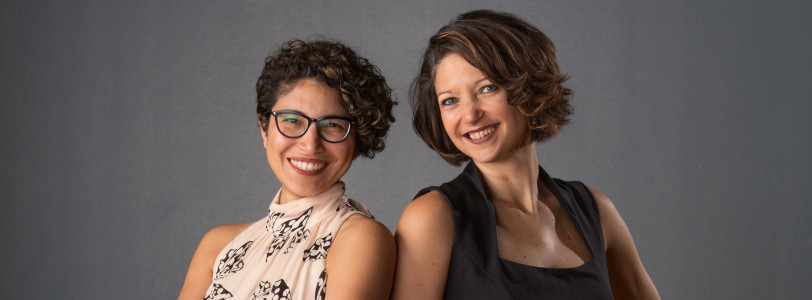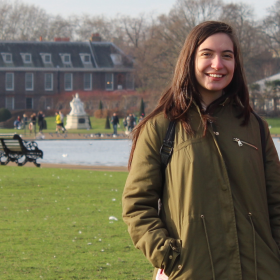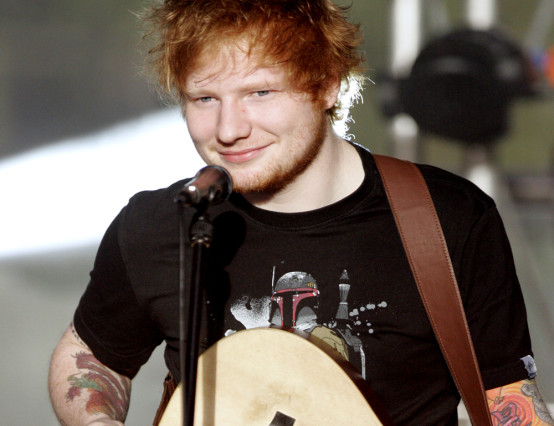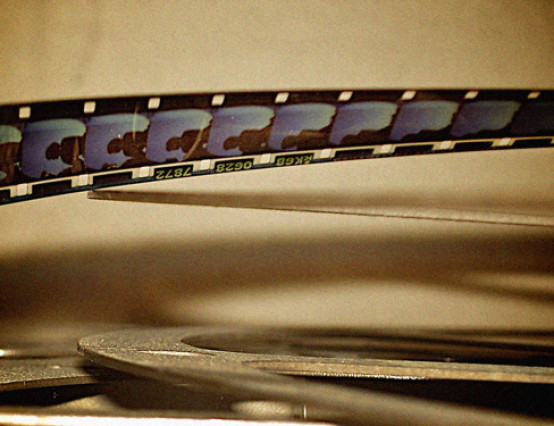Launched in 2019, Boulanger Initiative is an organisation that advocates for women and gender marginalised composers. Named in honour to the work of composers Lili and Nadia Boulanger, its mission is to promote and expand the knowledge and access to a repertoire that has been long overlooked. In this interview, we talked about what it’s like to develop an organisation like BI, its many ongoing projects and the state of things for women composers.
Could you introduce yourself to our readers?
Yes! My name is Dr Laura Colgate, I am the co-founder and executive and artistic director of Boulanger Initiative.
How did the Initiative start? Can you tell us about the beginnings?
Sure, we have been around for a little over 5 years -we turned five this past summer- and I was getting a doctorate at the University of Maryland in violin performance, and I knew that I wanted to focus my dissertation on women composers.
At that time I was in a string quartet, and we were hoping to graduate and become the first all-female string quartet to have doctorates. Unfortunately, after my course work I had a spinal injury and didn’t know if I would be able to play again. I ended up having surgery and obviously I’m playing again now, but during that time I started preparing my dissertation to be a written dissertation on women composers. I went down this absolute rabbit hole and found out so many works by women composers. I found pieces for violin and piano, or violin in chamber music that I had never heard of, that I had never played, that I just didn’t know about. And the more I found, the more I felt a need to do more to have these composers and their music known, and played, and taught in schools. I had been through so many degrees at that point and I had never been offered even a chance to play any of this repertoire.
As I was working on my dissertation process, I met Joy Lelani Garbett, who is the co-founder and organist, and she was also working on her dissertation on women composers for the organ and the two of us met through a mutual friend at a local coffee shop. The first time we met, it was almost immediate that we started putting ideas together and the first thing was a chamber series- some sort of a performance series locally.
Every conversation we had went would add on to that and we would say “well, it’s not being taught in schools at all, so we have to do some sort of education component” and, you know, it’s so hard to access these resources and so hard to find this information, that it takes so much time and makes it harder for teachers and musicians and curators to actually be able to work with this repertoire. We kept adding component after component and realised eventually that there’s so many great organisations and individuals and people doing one component or the other, but there was no organisation that existed for women composers that was focusing on all of the different aspects and bringing them into one place. We got to the point where we felt like we just didn’t have a choice, like this had to exist, and we were in a place that could make it happen. That’s how we started!
What is Boulanger Initiative’s mission? What is your biggest goal?
Our biggest goal is to not have to exist, really. It would be great to not ever have to say the words “women composer” anymore, and it’s still necessary to bring the works and the composers to light and to recognition, and to fight for equity. But we work towards being obsolete, to not have to exist anymore; to live in a world where this music is performed and played and celebrated enough, and known.
About the projects within the initiative, you have a very exciting one which is the Redefining The Canon project. Can you tell us a bit about it?
Sure! Redefining the Canon looks at audition excerpts for orchestras and we sort of think of this as the pipeline to musicians to get into the music world, going through your undergrad and graduate process. By the time you’re even a sophomore, excerpts are standard canon that everyone already knows about: Beethoven, Mozart, all these excerpts you know by heart by the time you’re even as a sophomore in college if you’re a performance major. And if we can start getting excerpts by women composers into these lists and to have students at that age know them that well, and know these pieces, then by the time they’re professionals working in orchestras, awareness isn’t even almost a problem, and performance would not be a problem either- hopefully these orchestras would be playing these pieces and programming them, not just for auditions.
Another thing about Redefining The Canon is that it’s not just headed towards women composers, it’s all historically underrecognized composers- composers of colour and gender-marginalised composers. Nobody has ever sort of done a program like this before, so we didn’t want to go back and have somebody else invent the wheel and only focus on women composers, which is why we decided to expand it beyond just gender-marginalised composers. What we really hope is that as orchestras start adding these excerpts to their audition lists, people who identify as gender-marginalised or as musicians of colour will see these excerpts on the audition lists and it will make them want to be part of that community more. So representation on stage will start to change as well, and then that will affect representation on the audience, and we’ll have more audience coming in.
We work with orchestral partners to look at what auditions they have coming up. For instance, the National Philharmonic is the orchestra in Maryland that I’m a concertmaster of, and they recently had principal oboe auditions, so we worked with them to update their list, and it was the first excerpt list that I have seen for a professional orchestra that was majority under recognized composers, and it was really exciting and amazing to see.
Then we are also working on building some sort of supplement for the audition committee, so that they can look at all the excerpts and learn about the composers, and know where they can go find these pieces, and listen to them, and learn more about them so that the people sitting on the jury are also learning about the pieces and know what it is that they’re hearing over and over and over in these auditions. But bringing on orchestral partners and working on one audition at a time to try to change their audition excerpt lists and then we have ‘excerpt foragers', is what we call them. It’s really just volunteers that come on and if you play, you know, the violin, we send you a form and a part for your instrument of a piece, and you can go through and find those perfect twelve measures that can work as an excerpt and even if you can say “well, this would be a great substitute for that Brahms 3rd excerpt that we always play” we can go and see “okay, these are possibilities to swap out for''. We’re not just making lists longer.
You have created a very useful platform, which is the BI database. Can you tell us about it? How was it created, what was the process like and how do you keep it updated?
This has been a very long process. This is one of the very first things we started, my co-founder Joy and I. The amount of time that it took us, during our dissertation process to find one composer and then find their pieces, and then to track down the scores, and the parts, and see if there are recordings. Ten years ago there was way less available than there is even now, but specifically for non-living composers there’s so few resources out there, and teachers and students should not be spending their time trying to track things down, they should have a resource that they can find things easily and then they can actually spend the time learning the music and playing the music, and learning about the composer’s lives, and the database is a jumping off. So that it’s so much easier for this music to get out in the world. But it started as a simple spreadsheet, and right now it only includes non-living composers.
We will be adding living composers, we just have to go through the process of consent and all of that and we’re starting to work on that, but for now, we have almost 10,000 works by non-living composers and there are over 1200 composers currently in the database, and we’re always going through new phases of adding new searchable features, so right now we’re working on building grading scales so that people can see how difficult a piece is, so if they’re looking for something for their student orchestra they can easily determine which pieces may be a good fit and that kind of thing. But we’re always, always updating. We have a database director and a research director, and we have our summer interns- currently, we have 10 interns working with us just on the database, so this is never-ending work. This will be going on forever, it’s never gonna be finished.
One of my favourite things about the database is being able to find pieces that haven’t been published and haven’t been recorded, and you can go and click one button and go and see something that hasn’t been recorded if you’re interested in recording something for the very first time, and it’s so much easier to find those things now and being able to put manuscript locations if something hasn’t been published and people can easily see where the manuscript exists, if they want to go and engrave and get the score published for the first time.
You mentioned earlier that you work with interns. Can you tell us about your internship programmes? And what about the mentorship programs?
Right now we’re doing internships by semester, so we have three semesters a year that we bring interns for, and it’s sort of based on who we currently have on staff and what the need is of the organisation, but we have marketing interns, and business development interns and research interns. Every aspect and department of the organisation, when they have a need they bring on interns and we always make sure that interns are getting exactly what they want out of the internship, and we have so many different things that we do as an organisation that it’s been beneficial for both sides- for the intern and for the staff. But it’s such a great way for interns to get hands-on experience in arts administration or in research and really get their hands dirty and see what it’s like to work on this side, on the business side of the music industry. They are virtual internships, so we have interns from all over the world working with us, and there’s no age limit, so we have people who are professionals working with us as interns and it’s great to have a variety of people working with us.
The music that you work with it’s oriented to instruments, it’s instrumental music. Are you planning to work with electronic music or electroacoustic music?
Yeah, for sure! Even right now there are some things on the database even, but obviously, looking at non-living composers there’s less electronic music to be included, but we have our annual music festival every year and this past summer we had our 5th festival, called WoCo Fest, short for Women Composers Festival, and every single festival that we’ve done has had some electronic music component. Even as a violinist myself, I love doing music with electronics and working with living composers. I think that will be a big component of the database once we add living composers.
Moving on from the work of the initiative itself, Where do you feel the classical music industry fails to make visible the work of women and gender-marginalised composers?
Everywhere. There is really no component of the music industry that I think is giving enough representation to women composers. We talked about performance from the stage and what’s being taught in schools. If you look at almost any textbook, there’s hardly anything included about non-living composers if you’re looking at music history, or even music theory. But really a lot of it comes from who’s in the leadership roles. But if we have more women conductors, more women concertmasters, more women deans in schools, and executive directors, and presidents, and if we’re filling those roles with more gender-marginalised people, then immediately that can help whether it’s in organisations or schools, no matter what it is. I think that’s one of the biggest things that would help change. When I was working on my dissertation, one of the biggest things ten years ago was awareness, and the first step is awareness. That if somebody isn’t aware that women composers aren’t being performed enough and aren’t being taught enough, then that’s the biggest barrier- so the first step is awareness and since then, even in the last ten years, that’s so much less of the concern now, because this has been on the radar in the music industry so much more, since the Me Too movement, and since George Floyd and a lot of orchestras are now saying that they really are trying to be more representative of historically under recognized composers. But we’re not seeing enough change.
Now that the awareness is there, making sure that there is a plan, and that it’s not just lip service, that they’re actually implementing things that will help. One of the big problems is that sometimes it’s hard to know where to start. There’s just so much out there and so much music that we don’t know. How does a conductor and music director know what to programme if they don’t know these symphonies and these scores? So one of our services is a consulting service. There’s a form on our website that anybody can fill out with any need- whether it’s they’re looking for a manuscript, or they wanna find a composer for a project, or they want to update their teaching syllabus for a course, or they want help programming for a concert or an entire season, that we have people on our staff who will work with organisations. One of the biggest ones is libraries; we’re working a lot with music libraries to help them choose what to add to their libraries first with the budget that they have, what to focus on, and what to buy for their libraries, so that their students, their audience, their community has access to it.
One of your programmes is the mentorship program, right?
We did one season of a mentorship program and it was actually during Covid, so, the entire thing had to be done virtually and we’re hoping to get that up and running soon. But we did one (I think it was an eight-month mentorship programme), so we had composers working directly one on one with professional composers and specifically working on the professional development side of the industry, because it’s so much harder to get access to information and mentorship from that side. You go to a music school as a composer and you’re taught how to compose music. But composers these days have to know how to publicise, they have to know how to build a website, they have to know how to write contracts, they have to know all of the stuff- from finance to technology and all of that. The focus of the mentorship programme was to be able to bring in professional composers who are really good at teaching that professional development side of things.
Besides the database and the work with the database, how do you work with living composers? Do you work with living composers? How?
A lot of it is through our festival, WoCo Fest which allows us to build that community and bring people from the industry together, musicians, composers and audience members into the same space, and a real support of the community that can come together. We have people who come every single year because they want to be around the community and be meeting new people, not just networking. We’ve seen projects grow from people who met at the very first festival. We now have seen so many new pieces come out of those relationships, and new projects. So many things grow from having built this community. We do a few concerts throughout the year as well, and we do a lot of education programming.
Last semester we just finished our first residency with a local all-girls highschool, and we would work with them throughout the year and they had capstone projects that they would be working on, whether it was performing something by a gender-marginalised composer, or writing a podcast about a gender-marginalised composer, or composing themselves. We were working with them throughout the year and also bringing programmes to them, bringing composers into the classroom to talk to them and do composition workshops and graphic design workshops for graphic composition scores, then bringing in even the musicians for the festival, so Room full of teeth was the headliner for this past festival- and Caroline Shaw is one of the members of the group, so she was with them and they visited the school and got to work with the students, and the students got to sing one of Caroline Shaw’s pieces for Caroline Shaw, and work on it with them, and then the student choir sing in the festival as well. We have a lot of different components that we work with living composers on.
The other big one is our virtual programme. Every month we have Wikathons, which are meant for updating Wikipedia articles or journals for women composers who are already in there- it’s not creating new Wikipedia pages but going and making sure that there is more information included in the Wikipedia articles for composers. On top of the Wikathons we’re also doing different programmes, either about composers or professional development topics and various things, so every now and then we’ll have living composers present a workshop or things like that.
How do you see the future for women and gender-marginalised composers?
I think it’s already better than it was ten years ago. One of the things that you just mentioned, going back to leadership roles, we have to have more composition teachers in schools and leading the way and being performed, and acting as mentors and role models, unless children see themselves represented in a profession, they´re so much less likely to do that as a living and to be led to a certain profession if they’re not seeing themselves in that role, in that position. And more and more we are seeing that start to happen, but we’re not even close yet. You look at most of the faculties at music schools, and universities and conservatories and there still aren’t nearly enough women on faculties in those positions, which leads to less students who are gender-marginalised getting into the programmes and being taught and becoming composers eventually.
Every year we’re cripping up a little bit, getting a little bit better, but we still have a long way to go. I think for living composers, we’re starting to see orchestras play a lot more contemporary music. Music by living composers, which is fantastic, but there is still long ways to go there, and the worse component is orchestras performing music by non-living gender-marginalised composers and it’s absolutely terrible- it’s under 2% or something if you look it, at least american orchestras, the big orchestras of America with big budgets. So I think that’s going to be one of the biggest things that can help overall in the industry- for awareness, from the audience's side, from the performer’s side, from every end, from administration. The biggest thing that gives me hope is the awareness and the activism of younger students right now. They want to be learning about these composers and playing this music and they’re going to push the industry and the older people who are in leadership roles right now to make sure that they are being inclusive and they are representing their communities.
You can find out more about the Initiative's work here: https://www.boulangerinitiative.org/
Follow Boulanger Initiative on social media here: @boulangerinitiative
Boulanger Initiative logo Photo Credit: Boulanger Initiative









0 Comments